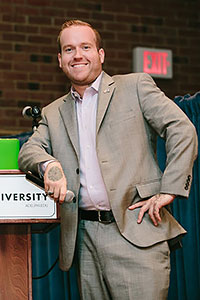White Papers Week 2: Behavioral Health
The Impact of Language on Behavioral Health
Stigma, Policy and Practice

Introduction
The language used to discuss and describe mental health and substance use has changed dramatically over the last 100 years. Modern and postmodern society has transcended labels such as teetotaler, derelict, crazy, and psycho, though iterations of these negatively associated phrases remain. Changing linguistic trends within the mental health and substance use disorder fields have been propelled forward by the inclusion of concepts such as person-first language; first by mental health advocates, and later co-opted by advocates within the substance use disorder space. Similarly, medical professionals are driving change towards the use of more clinically appropriate language (e.g. substance use disorders, rather than substance dependence and abuse), which is having both positive and negative impacts.
Download the full White Paper at Recovery Language
Biography
Robert Ashford is an expert in behavioral health recovery and social justice advocacy, and devotes his time to exploring the impact of substance use disorders and mental health concerns on youth and young adult populations. His research focuses on substance use, recovery communities, integrated behavioral health systems, linguistic patterns, and technological interventions for behavioral health disorders. Mr. Ashford currently serves as a Technical Assistance Manager at JBS International, where most of his time is committed to the Medication Assisted Treatment – Prescription Drug and Opioid Addiction federal grant program. He holds a Bachelor of Social Work with minors in Addiction Studies and Psychology from the University of North Texas, and a Master of Social Work from the University of Pennsylvania School of Social Policy and Practice (SP2). Robert has also completed fellowships with the Treatment Research Institute and is currently a research fellow at the Center on the Continuum of Care in Addictions at the Perelman School of Medicine at the University of Pennsylvania. Robert has been the recipient of many prestigious awards, most notably NADAAC’s Young Emerging Leader Award (2014), Young People in Recovery’s Advocate of the Year (2014), University of North Founders’ Award (2015), and the University of Pennsylvania Provost’s Citation for Excellence in Service (2017). He is a current national recovery planning partner for the Substance Abuse and Mental Health Services Administration (SAMHSA), grant reviewer for the U.S. Department of Health and Human Services, and serves as an appointee to the Philadelphia Mayor’s Task Force to Combat the Opioid Epidemic.